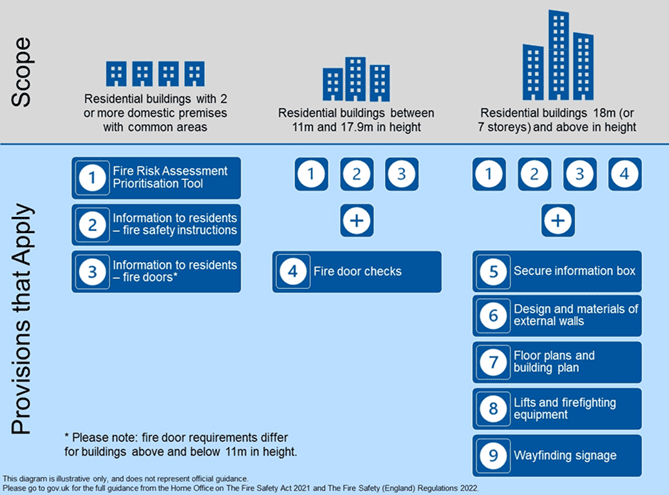Ensuring a safe workplace isn’t just a legal obligation—it’s a moral one, protecting employees, clients, and property.
We’ll explain why training matters, how to prepare for inspections, and what best practices help businesses stay compliant year after year.
Read on to discover what training your team needs.
Why Fire Safety Matters in US Offices
According to the National Fire Protection Association (NFPA), thousands of commercial fires occur each year, causing billions in property damage and tragic losses of life.
Companies that prioritize fire prevention demonstrate responsibility, enhance employee trust, and maintain business continuity.
Failure to comply can result in severe fines, legal liability, or even closure.
Understanding Fire Warden (Brigade) Training Requirements
In the US, fire warden (sometimes called fire brigade) training equips designated employees with the knowledge and skills to lead evacuations, assist during emergencies, and communicate effectively with first responders.
Many programs cover topics like fire extinguisher use, alarm systems, emergency communication, evacuation routes, and post-incident reporting.
Look for programs aligned with OSHA standards, NFPA guidelines, and local fire codes.
How to Prepare for Fire Safety Certification and Renewals
These certifications confirm that the office has adequate fire alarms, extinguishers, evacuation plans, signage, and trained personnel in place.
To prepare, start by conducting an internal audit.
Keep detailed maintenance records, update training logs, and perform regular fire drills to stay prepared.

Best Practices to Maintain Fire Safety Year-Round
This includes routine equipment checks, clear communication, and fostering a culture where all employees understand their role in fire prevention.
Regular maintenance is critical: schedule monthly checks on fire alarms, smoke detectors, sprinkler systems, and extinguishers.
When fire safety becomes part of the daily routine, employees are more confident, better prepared, and less likely to panic during a real event.
Why Compliance Matters for Liability and Coverage
Failing to meet fire safety standards can have severe legal and financial consequences for US businesses.
In the event of a fire, inadequate documentation or proven negligence may result in denied claims, leaving businesses to cover damages out of pocket.
Investing in compliance is not just about avoiding penalties—it’s about protecting your assets, your team, and your future.

Conclusion: Building a Fire-Safe Workplace
Creating a fire-safe workplace is not just about ticking regulatory boxes—it’s about protecting lives, preserving property, and fostering a culture of responsibility.
They not only meet legal obligations but also build trust with employees, clients, and insurers.
As fire risks evolve and workplace environments change, staying proactive is essential.
FAQ About Office Fire Safety
Who needs fire warden training in a US office?
Typically, designated employees such as team leads, managers, or safety officers receive fire warden training.
What is the renewal period for fire safety compliance?
Renewal periods vary by jurisdiction but are often required every 1–3 years.
What are common causes of office fires?
Common causes include electrical malfunctions, overloaded power strips, kitchen accidents, improperly stored flammable materials, and heating equipment issues.
Why do insurers care about fire safety?
Staying compliant protects both your business and your financial stability.
How do I write an effective workplace fire plan?
Drills and refresher training help keep the plan effective and actionable.
equipamentos para brigada de incêndio serviços de segurança predial